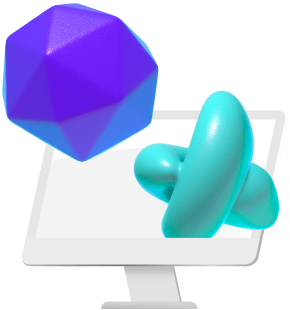Gamers are the lifeblood of the billion-dollar gaming industry, but the backbone of video games will always be the developers behind the scenes. Developers are in charge of crafting the direction, plot, gameplay, and marketing of all our favorite best-selling titles.
Today, we’ll be going over the kinds of tools that game developers and experience developers use to create the games we know and love as well as a way to work around your computer’s hardware limitations when it comes to more demanding programs. If you’re looking into becoming a developer yourself, or even if you’ve been working as one for a while now, this list can hopefully shed some light on what tools can best suit your needs as a professional.
Houdini FX
Houdini FX is perfect for game developers looking to create high-quality 3D animations. As a testament to its robustness and versatility, it’s also widely used in professional commercials and even feature films. It’s also the perfect tool to use when you need to run procedural generations and simulations.
Additionally, with its node-based workflow, custom configurations of different nodes are easy to share with other game developers and 3D artists. Houdini FX is known to have a large community of users ready to help new users and dole out tips.

Unreal Engine
Epic Games’ Unreal Engine is one of the most prolific game engines being used today. It’s popular with developers of all sizes, from big-name franchises to independent developers and it has good reason to be.
It’s easily accessible and usable by beginners and veterans alike. Unreal Engine is an amazing program for transferring game ideas into usable and playable content. It has a wide array of tools to help create both 2D and 3D assets while keeping things scalable and easily customizable for developers.

Blender
Blender is mostly known for being open-source and free to use, but don’t let that non-existent price tag fool you. It is one of the best programs out there for animation, 3D modeling, and game development. The learning curve is relatively easy for beginners and even veterans who are more accustomed to other 3D software.
As it is an open-source program, it also has an amazing online community that maintains, develops, and updates it constantly. This also gives users access to countless useful plug-ins that, when curated and used together, have the potential to give you the most efficient and seamless workflow for your specific game development needs.

Helix Core
Aside from choosing your preferred game engine when developing a game, team management and collaboration are equally crucial parts of the development process when several people are involved. Helix Core makes sure that production runs with minimal issues by making sure that all relevant members of the team have access to all updated assets and source codes. It keeps track of any changes made and gives users to accurately track a game’s different versions.
This instant-update approach to collaborative game development makes Helix Core great for remote teams, which is starting to be the norm rather than the exception nowadays. Plenty of big-name studios as well as smaller teams use this program as their go-to version control software.

Unity
Unity is a multi-platform game engine that’s popular with both large and smaller game development teams. It boasts robust functionality alongside intuitive workflows and interfaces. Learning it on your own is perfectly achievable, but there are also a ton of courses out there that help new users get started with Unity. Its user-friendly reputation is a big factor in why it’s such a popular choice for developers today.
One of its most prominent strengths as a game engine is its versatility. Users can develop games for all major gaming consoles, not to mention Mac, Windows, and Linux platforms as well as mobile gaming. It can handle 2D and 3D games without a problem and is great for any size of the game.

With the game development industry being as quick to grow and change as it currently does, the standard tools being used will also adapt accordingly. Hopefully, though, the list we’ve gone through should stay relatively relevant for the foreseeable future. At the very least, it gives you a solid enough starting point as a game developer.
Bonus Suggestion: Vagon Streams
Come what may though, the best way to make sure that your computer can handle any programs for game development is to use application streaming services to suit your needs. Vagon Streams is one the best options available if you want to make sure that no matter how fast your industry’s software needs change!
With the help of Vagon Streams, now you can make any desktop app work from any device via the browser with no code and only with a few clicks.
Product companies, studios that develop virtual and visual experiences, agencies, design app developers, game companies, and anyone who touches performance can benefit from Vagon Streams in just 2 simple steps:
(1) Upload your application file
(2) Customize your choices and you’re ready to go!
Vagon Streams is fully automated and ready to present your users with a brand-new experience. Whether what you are looking for is virtual experiences, real estate virtualization, virtual exhibitions, concerts, product showrooms, a design on the web, education, meta, gaming, entertainment, virtual assistance, or more, now you can present these experiences without device-dependence with Vagon Streams! Please don’t hesitate to contact us if you need further assistance & information.
![]()




